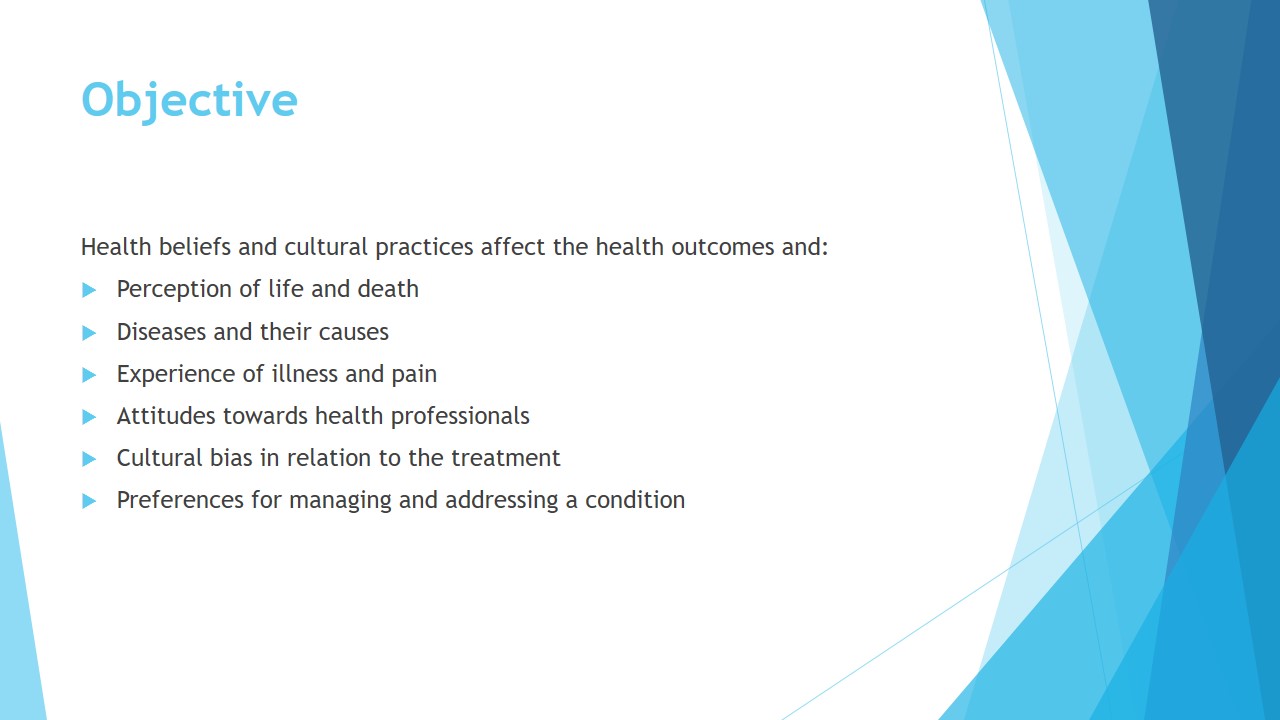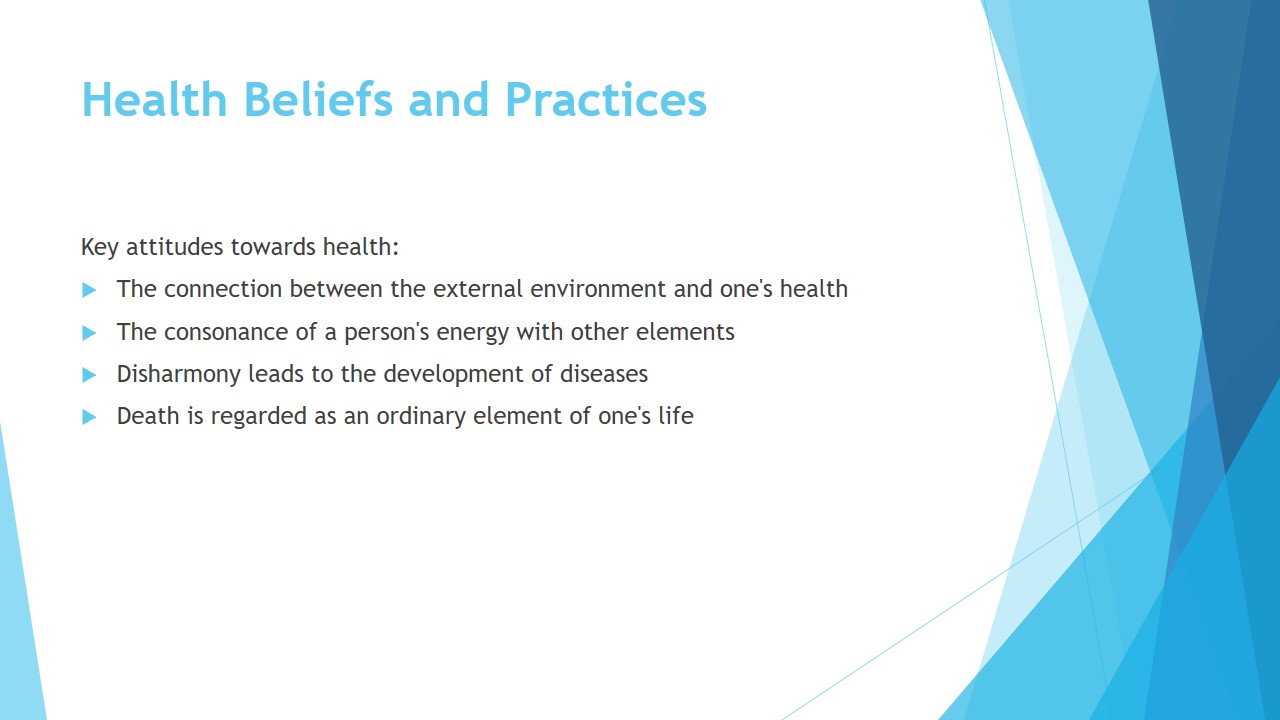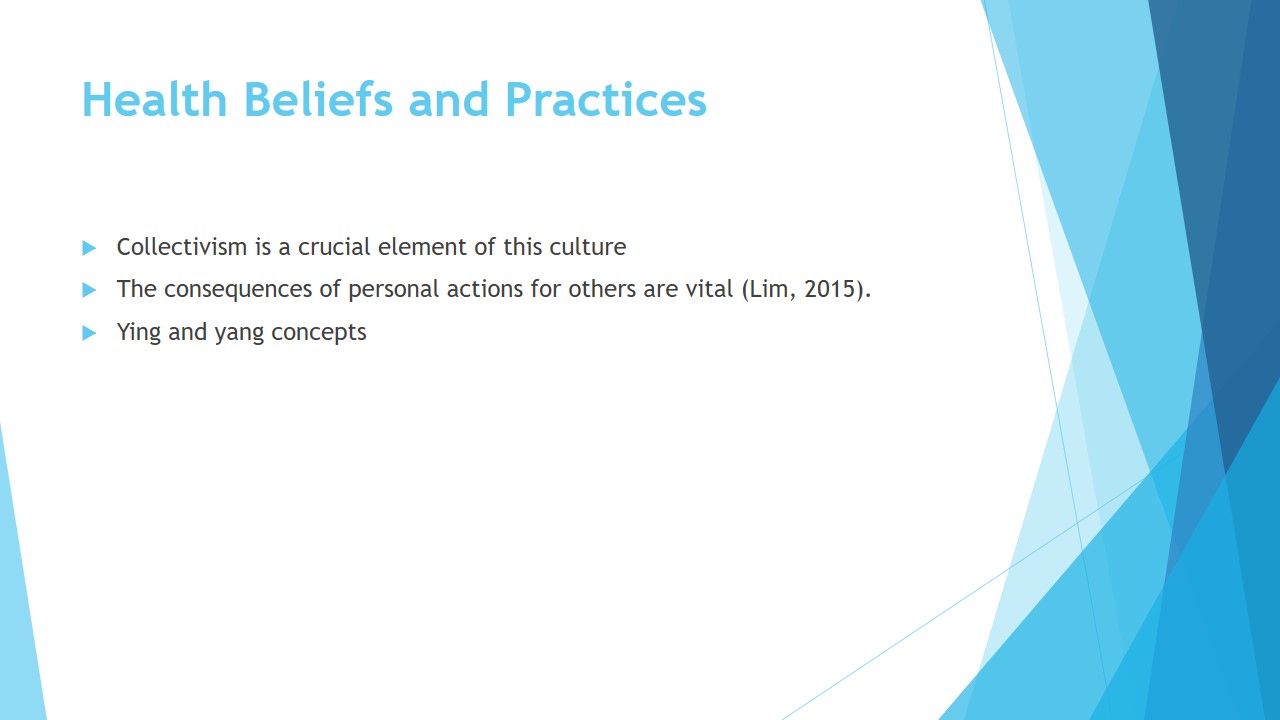Pick a cultural group (different from yours) that you commonly care for at work. Research the answers to the following… • Health Beliefs and Practices • Family patterns • Communication style • Space orientation and Time orientation • Nutritional Patterns • Pain Responses • Childbirth and perinatal care • Death and Dying • Spirituality, religion, and faith (include holy days) • Prayer and meditation • What knowledge did you gain about this group that you were not aware of? • How will this knowledge change the way you care for this cultural group?
Objective
Health beliefs and cultural practices affect the health outcomes and:
- Perception of life and death;
- Diseases and their causes;
- Experience of illness and pain;
- Attitudes towards health professionals;
- Cultural bias in relation to the treatment;
- Preferences for managing and addressing a condition.
Culture is an integral part of one’s identity, which is based on the customs and ideas shared among specific groups. Since culture has an essential meaning in the context of one’s life, this element inevitably has a significant impact on health-related issues and their view. For the purpose of this presentation, one cultural group was chosen for an in-depth analysis and various aspects connected to spirituality, specific practices, nutrition, family patterns will be reviewed. The purpose of this presentation is to explore the cultural patterns of the Chinese population, especially those relating to the perception of health.

Health Beliefs and Practices
Key attitudes towards health:
- The connection between the external environment and one’s health;
- The consonance of a person’s energy with other elements;
- Disharmony leads to the development of diseases;
- Death is regarded as an ordinary element of one’s life;
- Collectivism is a crucial element of this culture;
- The consequences of personal actions for others are vital (Lim, 2015);
- Ying and yang concepts.
In Chinese culture, the essential element explaining the health-related attitudes is the perception of a human body and environment as one. Hence, the primary objective that results in well-being is to be in harmony with nature. Based on this, the perception of illness that this cultural group has is connected to the notions of harmony and disharmony. A disease is a result of the dissonance between a person and his or her surroundings, and therefore, the main focus of treatment is on restoring the balance (“Chinese culture,” n.d.). Interestingly, death is not feared by this cultural group because the Chinese see it as an integral part of life.
A broader perspective should be taken to fully understand how Chinese view well-being and which factors are essential in the decision-making process. The two critical differences that distinguish cultures is their focus on society as a whole or an individual (“Chinese culture,” n.d.). This cultural group emphasizes collectivism, meaning that unlike individualistic people, the Chinese are primarily concerned with the effect that their choices will have on others. In the context of care, this may mean that people can refuse treatment if it burdens their family members. The concept of yin and yang, vital for understanding the health beliefs and practices of the Chinese describes two opposite forces that continuously interact with each other.

1 hour!
The minimum time our certified writers need to deliver a 100% original paper

Family Patterns
- Key features of a Chinese family:
- Collectivistic approach to the perception of the society;
- Nuclear family approach (two parents and their children);
- Family is part of one’s identity (“Chinese culture,” n.d.);
- Individuals in Chinese culture must:
- Honor elders and children have to respect their parents;
- Obey the decisions made by their families;
- Understand that interests of the family exceed personal;
- Adhere to gender role standards (“Chinese culture,” n.d.).
As was mentioned before, the Chinese base their culture on the view of an individual as an integral part of a social group, for instance, a family. This is contrasting to the standard approach of indivi
Order this paper